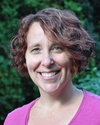- Winter 2020
Syllabus Description:
Instructor: Dr. Jennifer L. Taggart
Office: Padelford C-336
e-mail: taggart@math.washington.edu (specify Math 112 in all correspondence)
Office Hours: MWF 11:30-12:15, or by appointment
Math Study Center Hours: Wednesday, 3:30-4:30
TA email and MSC Hours:
| AA/AB | Haim Grebnev | hgrebnev@uw.edu | TBD |
| BC/BD |
Alanna Gary |
apgary@uw.edu | TBD |
Exam Dates:
- Midterm I: Thursday 1/30 in Quiz Section
- Midterm II: Tuesday 2/25 in Quiz Section
- Final Exam: Saturday 3/14, 5:00-7:50 pm, ARC 147
Text: Mathematical Applications for the Management, Life, and Social Sciences, twelfth edition by Harshbarger/Reynolds, available at University Book Store or electronically (with Webassign - see below)
Other Required Materials (bring to each class):
- a clear plastic ruler
- a TI-30X IIS calculator
Math Study Center Information: The Math Study Center for Math 111/112 is located in Communication B-006 and is open Monday through Thursday afternoons. (Precise hours will depend on the availability of tutors and will be announced during the first week of the quarter.) The MSC is staffed by TAs and instructors of Math 111/112 and is an ideal place to work on homework and study for exams. When you have a question, either raise your hand or put your name on the waiting list to receive help from one of our experts.
Course Objectives: Students will learn the concepts of differential and integral calculus in specific contexts with emphasis on applications to economics. Topics will include: rates of change, tangent lines, derivatives, accumulation, area, integrals, multi-variable functions, and partial derivatives.
Grading: Your grade will weighted as follows:
| Homework | 15% |
| Participation | 5% |
| Exam I | 22% |
| Exam II | 22% |
| Final Exam | 36% |
Homework: Homework will be administered by Webassign and will typically be due every Tuesday and Thursday night at 11 p.m. You will use a portion of each quiz section to ask your TA questions about the homework due that night. No extensions will be given to anyone for any reason. You may miss 10% of the total of homework points available for the quarter without penalty to your grade.
Participation: A portion of most quiz sections will be dedicated to either working on a group activity or practicing working old exam problems individually. The purpose of group activities is to get you to articulate your ideas and questions in small groups and have conversations about the material with your colleagues. The activities will contain important content that relates to both the homework and exams. The purpose of the individual test preparation problems is to give you the chance to practice working actual exam problems in a test-taking environment. For each group activity and test prep problem, you will receive a participation score (either 0 or 1). To receive participation credit: go to quiz section and participate and then fill out the appropriate participation questionnaire on Canvas by noon the next day. If you are unable to attend quiz section, you may access and complete on your own the activity or test prep problem(s) and the participation questionnaire.
Exams: You will be allowed to use a TI-30X IIS, a ruler, and one 8.5-by-11-inch sheet of handwritten notes for the exams. Other electronic devices will not be allowed (e.g. no other calculators, no cell phones, no laptops). You may not share a calculator nor a note sheet with another student on an exam.
Make-Ups: Extensions and extra submissions on homework will not be given under any circumstances. Homework assignments will generally be released a week ahead of the due date, which should give you time to work around any schedule conflicts. In addition, you may miss up to 10% of the total number of homework points during the quarter without penalty to your grade.
In the case of participation in university sponsored activities, such as class field trips or athletics, arrangements must be made at least one week in advance for conflicts with midterm exams. You will be required to provide documentation for your absence.
Make-up exams will not be given. If you miss an exam due to unavoidable, compelling, and well-documented circumstances (e.g., illness, transportation emergency), your final exam may be weighted more heavily. Contact Dr. Taggart immediately if one of these circumstances arises. Conflicts with the final exam are handled through the Math Student Services Office (PDL C-36).
Religious Accommodations: Washington state law requires that UW develop a policy for accommodation of student absences or significant hardship due to reasons of faith or conscience, or for organized religious activities. The UW’s policy, including more information about how to request an accommodation, is available at https://registrar.washington.edu/staffandfaculty/religious-accommodations-policy/. Accommodations must be requested within the first two weeks of this course using the Religious Accommodations Request form.
Access and Accommodations: If you have already established accommodations with Disability Resources for Students (DRS), please communicate your approved accommodations to me at your earliest convenience so we can discuss your needs in this course.
If you have not yet established services through DRS, but have a temporary health condition or permanent disability that requires accommodations (conditions include but not limited to: mental health, attention-related, learning, vision, hearing, physical or health impacts), you are welcome to contact DRS at 206-543-8924 or uwdrs@uw.edu or disability.uw.edu. DRS offers resources and coordinates reasonable accommodations for students with disabilities and/or temporary health conditions. Reasonable accommodations are established through an interactive process between you, your instructor(s) and DRS. It is the policy and practice of the University of Washington to create inclusive and accessible learning environments consistent with federal and state law.
More UW Resources:
Disability Resources for Students
Student Counseling Center
Center for Learning and Undergraduate Enrichment (CLUE)
